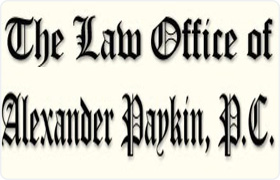Island Park Real Estate Lawyer, New York
Sponsored Law Firm
-
 x
x

Click For More Info:
-
The Law Office of Alexander Paykin, P.C.
350 5Th Ave Fl 59 New York, NY 10118» view mapReal Estate Reliable. Dependable. Accessible.
Whether you are buying, selling, renting, or refinancing your house, our experienced legal team will strongly advocate for you at each and every step of the process.
800-747-9261
Elliot Scott Schlissel
✓ VERIFIEDDivorce & Family Law, Criminal, Real Estate, Wills & Probate, Bankruptcy & Debt
I am available to help my clients 7 days a week.
The Law Offices of Schlissel DeCorpo is composed of attorneys and paralegals who are caring, dedicated professionals contributing experience and exper... (more)
Jack Mevorach, Esq.
✓ VERIFIEDLawsuit & Dispute, Litigation, Business, Contract, Real Estate
Jack Mevorach is a practicing lawyer in the State of New York. He received his J.D. from Hofstra University School of Law in 1987. He currently works ... (more)
Glenn Joseph Ingoglia
Real Estate, Divorce & Family Law, Criminal, Accident & Injury
Status: In Good Standing Licensed: 27 Years
Matthew A. Miller
Real Estate, Criminal, Civil Rights, Business
Status: In Good Standing Licensed: 18 Years
Mark Ivan Rozell
Real Estate, Estate, Divorce, Civil & Human Rights
Status: In Good Standing Licensed: 40 Years
Colleen Renee Smith Gray
Real Estate, Lawsuit & Dispute, Accident & Injury
Status: In Good Standing Licensed: 15 Years
 Alexander Paykin New York, NY
Alexander Paykin New York, NY AboutThe Law Office of Alexander Paykin, P.C.
AboutThe Law Office of Alexander Paykin, P.C. Practice AreasSpecializations
Practice AreasSpecializations

